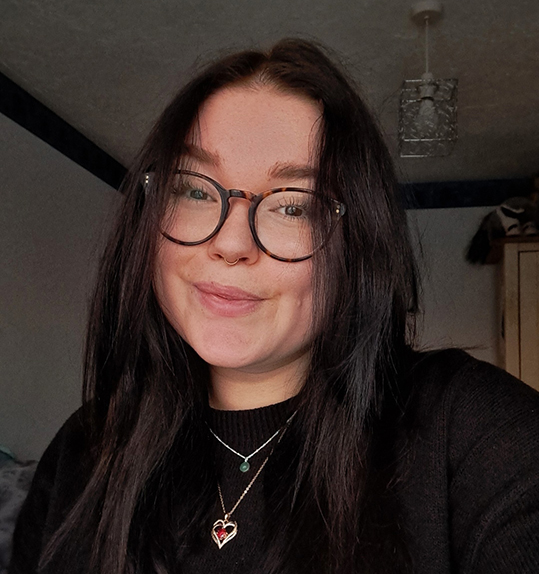In a special blog to mark Holocaust Memorial Day today (27 January 2023), PhD student Lucy Dixon examines the case of Irmgard Furchner and argues that discussion around how ordinary people were complicit in Nazi crimes is important.
At what stage does an ordinary person become extraordinary - or are there differing levels of 'ordinary' when it comes to turning a blind eye to genocide?
The Holocaust could not have fully been facilitated without the aid of ordinary people: ordinary people being those who turned a blind eye, believed in propaganda and joined in with dictated regime activities. Ordinary people can refer to the large number of victims and rescuers, but also predominately to those who were bystanders, witnesses and indirect perpetrators. One ordinary woman filled news platforms at the end of 2022.
Irmgard Furchner worked at Stutthof concentration camp, situated near the city of Danzig, during the second world war and was found guilty of being complicit in the murder of more than 10,500 people imprisoned at the camp. As a late teen, she worked as a secretary to the camp commandant between 1943 and 1945. Then, just over 70 years later, she received a two-year suspended sentence for her crimes.
During her role as a secretary, she would assist in the processing of prisoners and knew about the treatment of prisoners, which included both torture and murder methods. Most people sent to Stutthof faced the gas chamber or a gunshot to the back of the neck. Irmgard had enough insight into the activities that took place, so much so that the complicity turned into indirect perpetration. She did not directly perpetrate by killing these people, but rather facilitated the direct perpetrators through her job. (See more information here).

Lucy Dixon
There was debate around how harshly we should critique and punish these indirect perpetrators. However, what is incredibly important
is the actual recognition. It is easy for ordinary people to slip under the net and their involvement be overshadowed by the small number of extremists. Whilst the level of punishment is important in the retribution of all those who were indirect victims of Irmgard, the discussion around her as an ordinary person being complicit in Nazi crimes is as important. It is easy to overshadow the ordinary perpetrators/people by those who are considered extreme, for example the leaders of the Nazi party or even the well-known camp guard at Ravensbrück, Irma Grese.
However, the level of complicity is philosophically interesting due to the nature of totalitarianism at play. Influenced by Hannah Arendt's theory, totalitarianism is a form of government which attempts to assert total control over the lives of its citizens. It is comprised of one dominating ideology and total terror. It created a completely different society, which needs to be understood when talking about ordinary people - importantly though, this does not excuse their involvement in perpetration. The societal impact of totalitarianism affected everything and creates a grey area when researching ordinary people (indirect perpetrators) in genocides.
It is easy to think we can pigeon-hole people neatly into specific categories, but that isn't the case. This needs to be taken into consideration when looking at those ordinary people such as Irmgard Furchner. With this recognition, it can prompt us to understand the prejudice present in Nazi Germany, but also how we might see ourselves as ordinary people - and if and how we ourselves challenge prejudice.
Lucy Dixon's PhD thesis is titled: Reproducing Nazism: a feminist ethical critique of women's complicity in National Socialism at the intersection of maternity, care and thinking. It is grounded in the field of philosophy of education, with large influences from thinkers such as Hannah Arendt and care ethics thinkers Nel Noddings and Virginia Held. The project started out by researching the overlooked perpetrator of the Holocaust, however, this developed into broader research of general 'Aryan' women living in Nazi Germany through care ethics and feminist ethics.
Visit www.winchester.ac.uk/holocaustmemorialday2023 for more information about the University of Winchester's work in this area.
Press Office | +44 (0) 1962 827678 | press@winchester.ac.uk | www.twitter.com/_UoWNews
Back to media centre